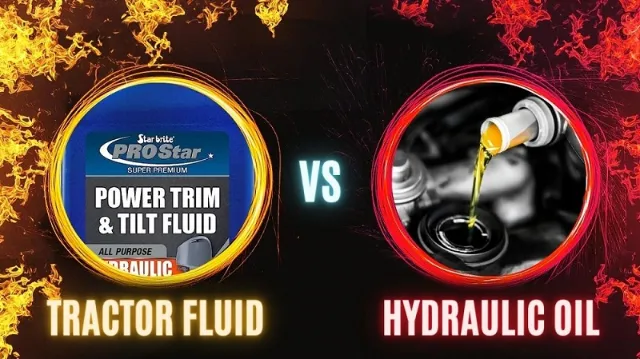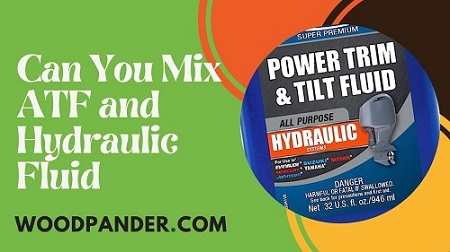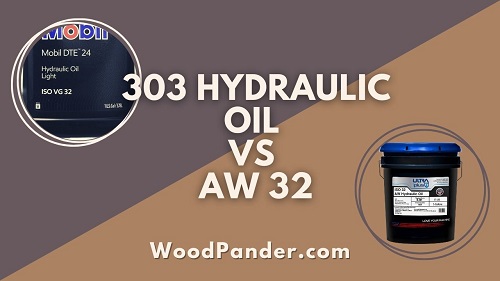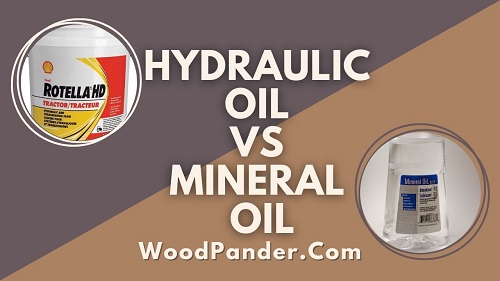When it comes to operating heavy machinery and equipment, understanding the fluids that power them is crucial. Two commonly used fluids are tractor fluid and hydraulic oil.
While both serve important purposes in various applications, they have distinct properties and specifications. In this article, we will delve into the differences between tractor fluid and hydraulic oil, helping you make informed decisions for your equipment.
Tractor Fluid vs Hydraulic Oil
| Features | Tractor Fluid | Hydraulic Oil |
|---|---|---|
| Function | Designed specifically for use in tractor hydraulic systems | Designed for general hydraulic applications |
| Viscosity | Higher viscosity to provide better lubrication and cooling | Varies depending on the specific application and system |
| Additives | Contains additives to enhance performance and protection | May contain additives for specific applications |
| Anti-Wear Properties | Provides excellent anti-wear protection for hydraulic parts | Offers good anti-wear properties, but may vary |
| Compatibility | Formulated to meet the specific requirements of tractors | Compatible with a wide range of hydraulic systems |
| Temperature Range | Suitable for operating in a wide range of temperatures | Varies depending on the specific hydraulic oil formulation |
| Foam Resistance | Includes anti-foam agents to prevent foaming and air entrainment | May or may not have anti-foaming properties |
| Water Resistance | Offers water resistance to protect against moisture ingress | May provide limited water resistance capabilities |
| Rust and Corrosion Resistance | Provides protection against rust and corrosion | Can provide rust and corrosion protection, but it may vary |
| Cost | Generally more affordable compared to hydraulic oil | The cost can vary depending on the specific oil type |
One of our articles –Hydraulic Oil vs Mineral Oil.
Understanding Tractor Fluid
| Aspect | Description |
|---|---|
| Definition | Tractor fluid, also known as tractor hydraulic fluid (THF), is a specialized fluid used in hydraulic systems of tractors. |
| Purpose | It serves multiple functions, including hydraulic power transmission, lubrication, cooling, and protection of tractor parts. |
| Compatibility | Tractor fluid is formulated to meet the specific requirements of tractors and is compatible with their hydraulic systems. |
| Viscosity | It has a higher viscosity compared to hydraulic oil, providing better lubrication and cooling for heavy-duty applications. |
| Anti-Wear Properties | Tractor fluid offers excellent anti-wear properties, protecting hydraulic components from excessive wear and tear. |
| Additives | It contains various additives to enhance performance, including anti-foam agents, anti-rust agents, and anti-oxidation agents. |
| Temperature Range | Tractor fluid is designed to withstand a wide range of operating temperatures, ensuring optimal performance in diverse climates. |
| Water Resistance | It provides water resistance to safeguard against moisture ingress, preventing damage to hydraulic components and system. |
| Foam Resistance | Tractor fluid includes anti-foam agents that reduce foaming and air entrainment, maintaining proper hydraulic system operation. |
| Seal Compatibility | It is formulated to be compatible with common sealing materials used in tractor hydraulic systems, preventing seal deterioration. |
| Specification | Various industry standards, such as ISO 6743-4 and AGCO/Massey Ferguson M 1145, outline the specific requirements for tractor fluid. |
Definition and Purpose
Tractor fluid, also known as universal tractor transmission oil (UTTO), is a specialized lubricant used in agricultural machinery such as tractors, combines, and harvesters. It serves multiple functions, including lubrication, transmission operation, and hydraulic power transmission.
Properties and Specifications
Tractor fluid possesses specific properties to meet the demands of agricultural equipment. It typically has excellent anti-wear and extreme pressure properties to protect gears and transmissions. Additionally, it offers good oxidation stability to withstand high operating temperatures and prevent the formation of sludge and deposits.
Tractor fluid also contains friction modifiers to ensure smooth operation of clutches and prevent chatter. Its hydraulic properties enable it to transmit power efficiently while providing appropriate viscosity for hydraulic systems.
One of our articles –Can You Use 15W40 Instead of 10W30?
Understanding Hydraulic Oil
| Aspect | Description |
|---|---|
| Definition | Hydraulic oil is a specially formulated fluid used in hydraulic systems to transmit power, lubricate components, and dissipate heat. |
| Purpose | It facilitates the transfer of energy within hydraulic systems, providing smooth operation and protection for system components. |
| Compatibility | Hydraulic oil is compatible with a wide range of hydraulic systems, including industrial machinery, automotive, and aircraft systems. |
| Viscosity | The viscosity of hydraulic oil varies based on the specific application, system requirements, and temperature conditions. |
| Anti-Wear Properties | It typically possesses good anti-wear properties to protect hydraulic components from friction, reducing wear and extending component life. |
| Additives | Hydraulic oil may contain various additives to enhance its performance, such as anti-foaming agents, anti-rust agents, and anti-oxidation agents. |
| Temperature Range | The temperature range of hydraulic oil depends on the specific formulation, with options available for both high and low-temperature applications. |
| Water Resistance | Some hydraulic oils have water resistance capabilities, providing protection against moisture contamination and maintaining system performance. |
| Foam Resistance | Certain hydraulic oils are designed with anti-foaming additives to prevent foaming and air entrainment, ensuring consistent system operation. |
| Seal Compatibility | Hydraulic oils are compatible with common sealing materials used in hydraulic systems, preventing seal damage and leakage. |
| Specification | Various industry standards, such as ISO 6743-4 and ASTM D6158, outline specific requirements and classifications for different types of hydraulic oil. |
Definition and Purpose
Hydraulic oil, as the name suggests, is a fluid designed for hydraulic systems. Hydraulic systems use this oil to transfer power and control various components such as cylinders, motors, and valves. They are commonly found in industrial machinery, construction equipment, and automotive braking systems.
Properties and Specifications
Hydraulic oil possesses specific properties to ensure reliable performance in hydraulic systems. It typically has high viscosity index (VI) to maintain consistent viscosity across a wide range of temperatures.
This property allows hydraulic systems to operate effectively in both cold and hot conditions.
Furthermore, hydraulic oil offers excellent anti-wear properties to protect sensitive components from damage caused by friction and pressure. It also possesses good filterability to prevent clogging of hydraulic filters and maintain system efficiency.
Differences Between Tractor Fluid and Hydraulic Oil

Composition and Additives
Tractor fluid and hydraulic oil differ in terms of their composition and additives. Tractor fluid is formulated specifically for the unique requirements of agricultural machinery. It often contains additional additives such as friction modifiers and anti-wear agents to meet the demands of transmissions and hydraulic systems in these machines.
On the other hand, hydraulic oil is formulated for a broader range of applications. It may contain additives like anti-foaming agents, rust inhibitors, and demulsifiers to address specific challenges faced by hydraulic systems in different industries.
Viscosity and Lubrication
Viscosity plays a crucial role in the performance of fluids. Tractor fluid typically has a lower viscosity than hydraulic oil, allowing it to flow easily through transmission and hydraulic systems. This lower viscosity ensures smooth gear shifting and optimal power transmission in agricultural equipment.
Hydraulic oil, on the other hand, often has higher viscosity to handle the pressure and load demands of industrial hydraulic systems. The higher viscosity provides enhanced lubrication and maintains consistent performance in heavy-duty applications.
Temperature and Pressure Ratings
Both tractor fluid and hydraulic oil have different temperature and pressure ratings. Tractor fluid is designed to withstand the operating conditions found in agricultural machinery, which often operate in a moderate temperature range. It offers good thermal stability to prevent viscosity breakdown and maintain consistent performance.
Hydraulic oil, however, is formulated to handle a wider temperature range. It can operate in extreme temperatures, both high and low, without sacrificing its performance. Hydraulic oil also provides excellent resistance to pressure, ensuring efficient power transmission in demanding applications.
Application and Compatibility
Tractor fluid and hydraulic oil have specific applications and compatibility considerations. Tractor fluid is primarily used in agricultural machinery and should not be substituted with hydraulic oil.
The unique additives and properties of tractor fluid ensure optimal performance and protection for transmissions and hydraulic systems in farming equipment.
Hydraulic oil, on the other hand, can be used in a variety of hydraulic systems across different industries. However, it is essential to consider the manufacturer’s recommendations and equipment specifications to ensure compatibility and maximize performance.
Choosing the Right Fluid for Your Equipment
Manufacturer Recommendations
When selecting the appropriate fluid for your equipment, it is crucial to consult the manufacturer’s recommendations.
Manufacturers specify the type of fluid and its specifications to ensure optimal performance and longevity of the machinery.
Following these recommendations will help you avoid potential damage and maintain warranty coverage.
Equipment Specifications
In addition to manufacturer recommendations, consider the specific equipment specifications. Different machinery may have unique requirements based on factors such as load capacity, operating conditions, and power demands. By understanding your equipment’s specifications, you can choose a fluid that meets those requirements and maximizes performance.
Environmental Considerations
Environmental factors, such as temperature and climate conditions, can influence fluid selection. If your equipment operates in extreme temperatures or harsh environments, it is essential to choose a fluid that can withstand those conditions.
Environmental considerations also include any regulatory requirements related to fluid disposal and environmental impact.
Maintenance and Care Tips
Fluid Level Checks and Replenishment
Regularly check the fluid levels in your machinery to ensure proper lubrication and hydraulic performance. Maintain the recommended fluid level within the specified range.
If necessary, replenish the fluid using the manufacturer-recommended type and grade. Follow the proper procedures for checking and refilling fluid levels to avoid contamination and ensure accuracy.
Contamination Prevention
Contaminants in fluid can compromise the performance and longevity of your equipment. Take preventive measures to avoid contamination by keeping the fluid storage and handling areas clean and free from debris.
Regularly inspect and clean filters, and ensure they are functioning correctly. Implement a regular maintenance schedule to replace filters and remove any accumulated contaminants.
Fluid Replacement and Flushing
Over time, fluids can degrade and lose their effectiveness. Follow the manufacturer’s guidelines for fluid replacement and flushing intervals.
Regular fluid replacement ensures optimal performance and prevents damage caused by old or degraded fluids. During fluid replacement or flushing, ensure proper disposal of used fluids according to environmental regulations.
Related Questions
Can I use tractor fluid instead of hydraulic oil in my hydraulic system?
A1. It is not recommended to use tractor fluid instead of hydraulic oil in hydraulic systems. Tractor fluid is specifically formulated for agricultural machinery and may not provide the necessary performance and protection required by industrial hydraulic systems.
Can hydraulic oil be used in tractors and agricultural equipment?
A2. Hydraulic oil can be used in tractors and agricultural equipment if it meets the manufacturer’s recommendations and specifications. However, it is important to consider the specific requirements of the equipment and ensure compatibility before using hydraulic oil as a substitute for tractor fluid.
How often should I check the fluid levels in my equipment?
A3. It is recommended to regularly check the fluid levels in your equipment as part of your maintenance routine. The frequency may vary depending on the equipment and its operating conditions. Consult the manufacturer’s guidelines for specific recommendations.
What happens if I use the wrong fluid in my equipment?
A4. Using the wrong fluid in your equipment can lead to reduced performance, increased wear and tear, and potential damage to components. It is important to follow the manufacturer’s recommendations and use the appropriate fluid to ensure optimal performance and protect your equipment.
Can I mix different brands of tractor fluid or hydraulic oil?
A5. It is generally recommended to use the same brand and type of fluid in your equipment to avoid potential compatibility issues. Mixing different brands or types of fluids can lead to unpredictable performance and may void warranties. Consult the manufacturer’s recommendations for guidance on fluid compatibility.
Conclusion
Understanding the differences between tractor fluid and hydraulic oil is essential for maintaining the performance and longevity of your equipment.
Tractor fluid serves specific functions in agricultural machinery, while hydraulic oil is more versatile for various hydraulic systems.
By considering the composition, properties, and application requirements, you can choose the right fluid for your equipment and ensure optimal performance.








